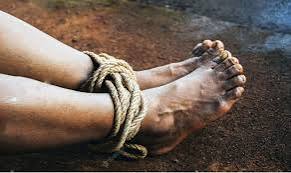Featured
Alleged N450m Fraud: Court Fixes March 12 To Rule On Belgore’s Electronic Evidence

TRACKING_____The Federal High Court sitting Lagos has fixed March 12, 2020, to rule on the admissibility of the Closed-Circuit Television (CCTV) footage and its Certificate of Identification sought to be tendered in evidence by a Senior Advocate of Nigeria, Dele Belgore.
Mr Belgore is standing trial alongside a former Minister of National Planning, Prof. Abubakar Sulaiman, on five counts of conspiracy and possession of proceeds of crime to the tune of N450million.
The Economic And Financial Crimes Commission (EFCC), alleged that the defendants laundered the money in the build-up to the 2015 General Elections.
The anti-graft agency claimed that the N450m was part of a larger sum of $115.01m, which a former minister of petroleum resources, Diezani Alison-Madueke, allegedly doled out to influence the outcome of the 2015 General Elections.
The EFCC also alleged that the defendants handled the huge sum without going through any financial institution, contrary to the provisions of the money laundering (prohibition) act.
At the proceedings today (Wednesday), Ebun Sofunde (SAN), counsel to the first defendant Belgore, sought the leave of the court to recall him (Belgore) into the witness box.
Sofunde asked Belgore to confirm the subpoena served on Yinka Omar, branch manager, fidelity branch, Ilorin, Kwara, asking him to produce the CCTV footage of the events that took place in the bank when the money was collected and its certificate of identification, which he did.
Belgore also said that after the documents were produced before the court, he viewed part of the footage, adding that he was aware that some people in his legal team had also seen the footage.
Shofunde, thereafter, sought to tender the CCTV footage contained in a flash drive and the certificate of identification attached to it.
Counsel for the EFCC, Rotimi Oyedepo, however, objected to the tendering of the documents on the grounds that the defendant was not the maker, so he could not give direct oral evidence or be cross-examined on it.
“In view of the fact that the device and certificate of identification were not made by the defendant; and the fact that he was not privy to the making, direct oral evidence will not be admissible, according to section 84 of the evidence act,” Oyedepo said.
He further argued that “the defence did not apply to tender the document in their subpoena, but to only produce it; hence, the admissibility of the document is to be determined by the court.”
Oyedepo, therefore, urged the court to reject the documents.
Sofunde, countered by submitting that the defendant was not giving direct evidence but only identifying the documents before him.
The defence counsel also argued that Section 84 does not say that documents cannot be tendered without the maker, but only stipulates what needs to be done for a document to be tendered in evidence.
After listening to both parties, Justice Aikawa adjourned the case till March 12 to rule.
-

 Politics5 days ago
Politics5 days agoJUST-IN: George Turnah Welcomes Isaac Amakuro’s Disassociation from G-House Political Family
-

 News7 days ago
News7 days agoJUST-IN: Police declare Portable wanted, slam attempted murder and four other alleged offences on him
-

 Breaking News7 days ago
Breaking News7 days agoEdwin Clark dies at 97
-

 Politics7 days ago
Politics7 days agoYou Have 72hurs To Resign Your Appointments From Gov Diri’s Govt: Alabh George Turnah Tells Loyalist.
-

 National6 days ago
National6 days agoNigerian Cybercrime Police Centre Summons UK-Based Blogger Over Sowore Birthday Post
-

 News6 days ago
News6 days agoDr. Ken Robinson: My Message On The Passing Of Chief Edwin Kiagbodo Clark
-

 Crime6 days ago
Crime6 days agoTwo residents of FCT killed by kidnappers due to delays in paying their ransom
-

 Politics7 days ago
Politics7 days agoUPDATE: Confusion as Newly Elected LAHA Speaker, Meranda Reportedly Resigns




